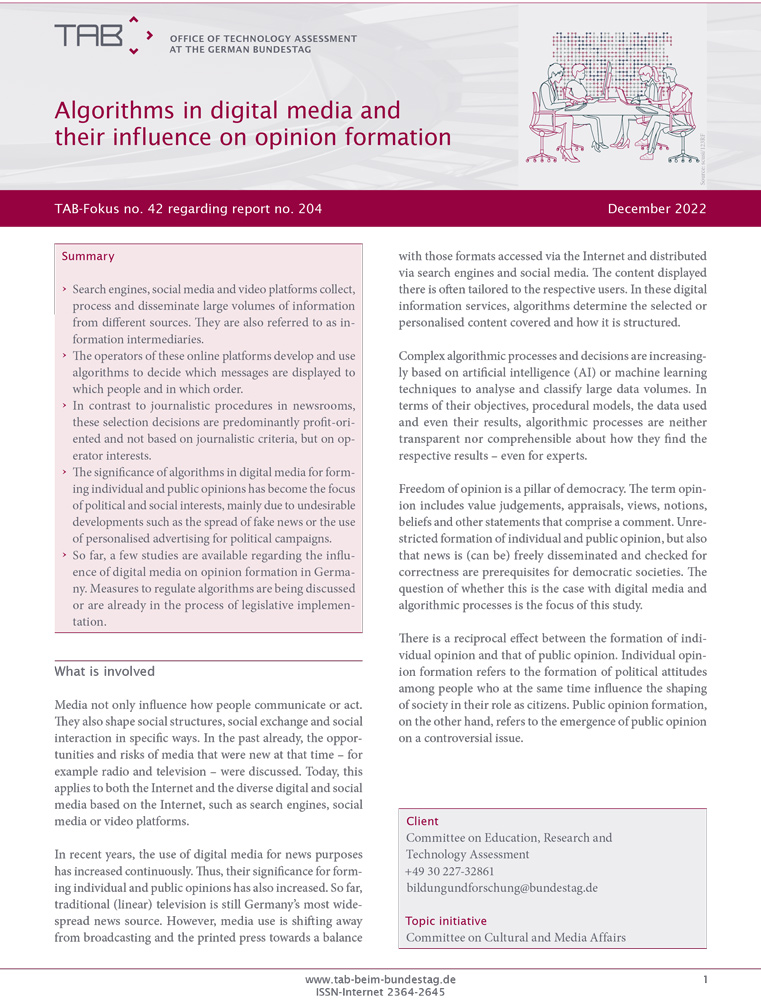What significance do the algorithmic systems of the major online platforms have for opinion formation?
Freedom of opinion is a pillar of democracy, the free formation of opinion a prerequisite for it. In recent decades, opinion-forming was shaped by journalistic-editorial media such as radio and the press. Today, more and more people inform themselves via search engines, social networks or video platforms.
The operators of these online platforms develop and use algorithmic systems to decide which reports are displayed to which people and in which order. Little is known about how these systems work. For users, the logic of algorithmic decisions is not transparent. The platform operators are not committed to journalistic standards, their business models are geared toward financial gain.
Fake news, microtargeting, video manipulation or even filter bubbles and echo chambers are among the dangers associated with online platforms and classified as a threat to democratic societies.
22.12.2022
The TAB report "Algorithms in digital media and their influence on opinion formation" explains the context: What is meant by opinion formation, what by algorithmic systems of digital media? How is the use of classical and digital media for news purposes changing in Germany? What findings do scientific studies provide on the significance of algorithms in digital media and on the effects on individual and public opinion-forming? What scope for action arises from a media law perspective?
Results at a glance are presented on the project page and in the policy brief TAB-Fokus no. 42.
Downloads and further information
- TAB-Arbeitsbericht Nr. 204 (only in German)
Algorithmen in digitalen Medien und ihr Einfluss auf die Meinungsbildung. Endbericht zum TA-Projekt (PDF),
doi:10.5445/IR/1000154065 - TAB-Fokus no. 42
Algorithms in digital media and their influence on opinion formation (PDF) - Project page: Algorithms in digital media and their influene on opinion formation

